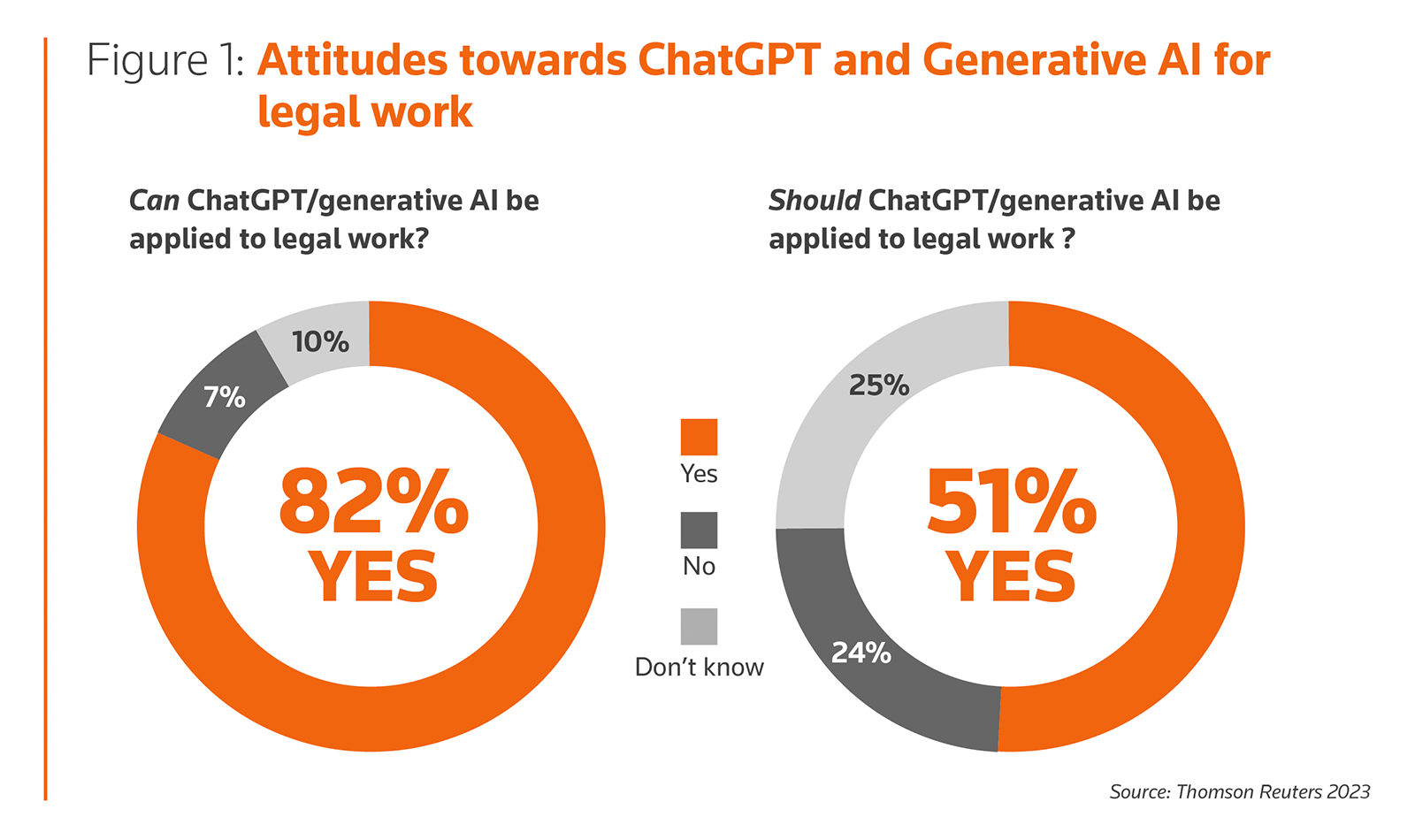ChatGPT and the Law: AI in Legal Assistance and Research

The advent of ChatGPT, a powerful artificial intelligence (AI) language model, has sparked both excitement and concern within the legal domain. AI systems like ChatGPT possess the potential to transform the way legal professionals research, analyze, and provide legal assistance.

Legal Research and Document Analysis
ChatGPT can significantly enhance legal research by automating and expediting the process. It can swiftly scour vast databases, identify relevant case law, statutes, and academic articles. This capability frees up lawyers from the time-consuming task of manual research, allowing them to focus on more complex and value-added activities.
Moreover, ChatGPT’s ability to analyze and summarize legal documents, such as contracts and pleadings, provides valuable insights for legal professionals. Its AI algorithms can extract key terms, identify legal issues, and even generate summaries, enabling lawyers to quickly grasp the substance of complex legal documents.

Legal Assistance and Advisory Services
Beyond research, ChatGPT can also assist lawyers in providing legal advice and guidance to clients. It can analyze client inquiries, identify potential legal issues, and provide tailored responses. While AI systems are not intended to replace human lawyers, they can serve as a valuable complement by automating repetitive tasks and providing accessible legal information.
Legal Draft Automation
One of the most transformative applications of ChatGPT in the legal field is its ability to automate the drafting of legal documents. ChatGPT can generate contracts, pleadings, motions, and other legal documents based on user-provided parameters. This capability streamlines legal processes, saving lawyers time and effort.
Ethical Considerations
Despite its potential benefits, the use of AI in law raises several ethical considerations. Ensuring that ChatGPT and similar systems are unbiased, transparent, and accountable is of paramount importance. It is essential to address concerns about algorithmic bias, data privacy, and the role of AI in legal decision-making.
Future Implications
The integration of AI into legal practice is expected to continue expanding in the years to come. As AI systems become more sophisticated, they will likely play an increasingly significant role in legal research, legal assistance, and legal decision-making. It is crucial for legal professionals to embrace this technological advancement responsibly and establish ethical frameworks to ensure that AI enhances the legal system without compromising its integrity.
